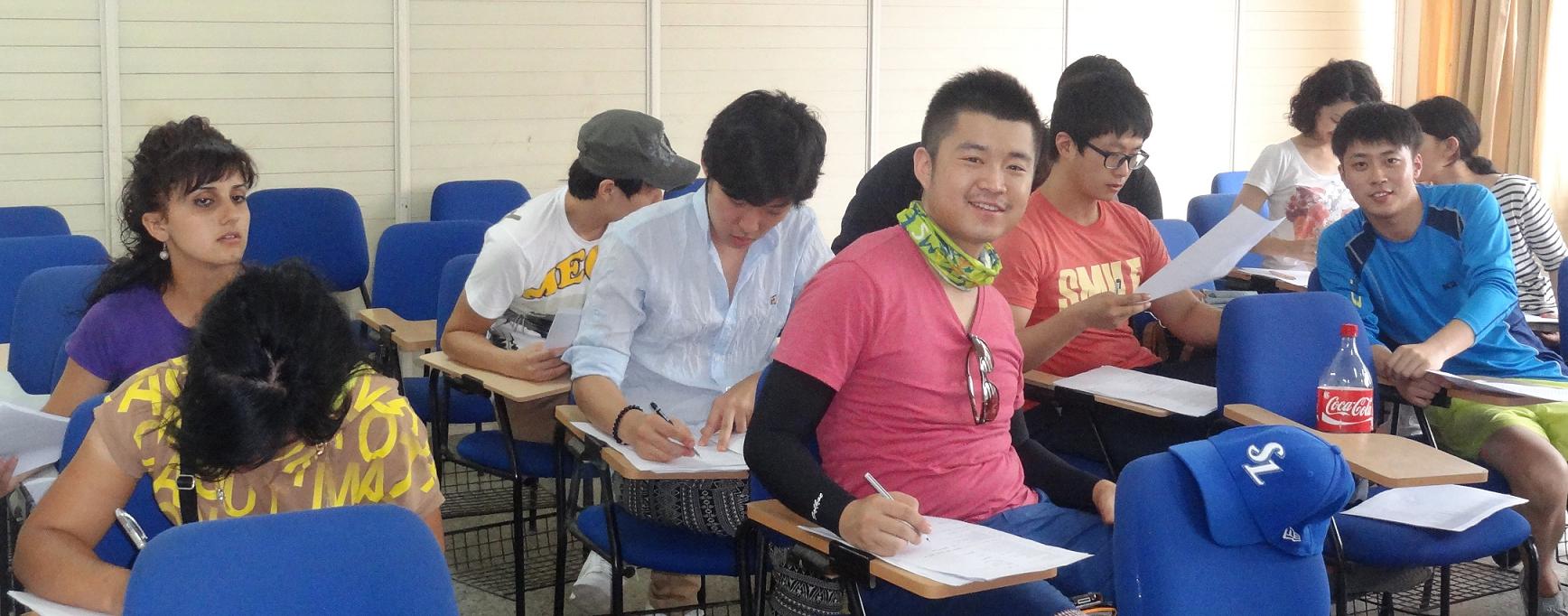Agra: Foreigners are queuing up to learn Hindi and there was a global conference too to celebrate the language. Nonetheless, as English spreads inexorably through what is still called the Hindi heartland, even its votaries are writing the epitaph for a language spoken by nearly 200 million people in the world.
In the English vs Hindi debate, the latter may be in the process of slowly being squeezed out – even in the swathe of north and central India known as the Hindi heartland. Thousands are queuing up to get their children admitted to English medium schools and English teaching shops are mushrooming across the country.
Even as Hindi – which is officially India’s national language – is promoted and conferences are held in various parts of the world, the ranks of those seeking to master English in India’s cities are swelling.
This city of the Taj is no exception.
As schools begin the admission process, anxious parents are making a beeline for English medium schools, seeking admission for their children in nursery.
“The elaborate admission process, beginning with the distribution of forms, started last week,” said Anjali, mother of three-year-old Bunty.
Firm in their belief that English is the best ticket to the India of today – and tomorrow – a large number of parents this year have joined grooming classes to brush up on their ‘English-Vinglish’ in a bid to bolster the chances of their children being admitted to English schools.
Referring to the recent Bollywood film of an Indian homemaker, Sridevi, struggling to master the language, senior school teacher Seema Gupta of the prestigious 167-year-old St Peter’s College said “English-Vinglish” was an eloquent expression of the deep frustration born of inferiority caused by a poor knowledge of English among “aspiring middle classes”.
Tragically, in this rush for English, there are no takers for Hindi medium schools, added school teacher Hari Dutt Sharma.
“The only schools that attract a large number of applications in Agra and its neighbourhood are those imparting education in English… There are hardly any private schools offering Hindi-medium education and government schools and those run by local bodies attract no applicants at all. Children only go to the government schools for the sake of the midday meal,” said Sharma.
The World Hindi Conference held at Johannesburg last month was a triumph and Hindi was celebrated as a tongue that nearly 200 million people in the world spoke. The enthusiastic response to that event buoyed the spirits of those seeking to promote the language.
“English in India, Hindi abroad” seems to be the motto of Indians on foreign soil, said Chandra Kant Tripathi, registrar of the Agra-headquartered Central Hindi Institute, which was set up in 1960 and aims to teaching non-Hindi speaking people the language.
“The World Hindi Conference in Johannesburg attracted literary luminaries from all parts of the world and proved a huge success,” Tripathi told IANS. Among those seeking to promote Hindi were MNCs seeking to expand their markets.
“This year, we have more than 90 students, including 15 from China and one from Switzerland. There are also students from Sri Lanka, Afghanistan, South Korea, Japan, and several other countries,” he said.
Paras Nath Choudhary, who has earlier been associated with the South Asia Institute of Heidelberg University, said: “Brand India is in demand all over the world… India offers solid cultural products to sell and this has indirectly helped the promotion of Hindi. In Delhi alone, more than 40,000 foreigners have shown interest in learning Hindi.”
Back home, however, the future is bleak.
“While there is this huge celebration of Hindi abroad, in the place of its birth Hindi has been compromised,” said Mahesh Dhakar. who writes on culture.
“Students can hardly write correct Hindi, and their vocabulary is invaded by all kinds of foreign words and internet-supported short forms. Chaste Hindi or Urdu has disappeared,” said Dhakar.
Meanwhile, English teaching shops are mushrooming. While there are scores of English-teaching centres in Agra, Mathura has at least a dozen. Firozabad too has a similar number of such centres. Tundla has a convent school with an enrolment of more than a thousand. In smaller towns like Fatehabad, Khairagarh or Jalesar, teachers offering private tuitions in English mint money.
As insurance agent Sudheir Gupta said, “English is not just another subject. It adds to your overall personality.”
Hindi in its various dialects is spoken in large parts of north and central India, including in its sweep Uttar Pradesh, Haryana, Madhya Pradesh and Bihar.
–IANS
The opinions, beliefs and viewpoints expressed by authors, news service providers on this page do not necessarily reflect the opinions, beliefs and viewpoints of Hill Post. Any views or opinions are not intended to malign any religion, ethnic group, club, organization, company, or individual.
Hill Post makes no representations as to the accuracy or completeness of any information on this site page.



